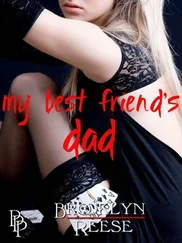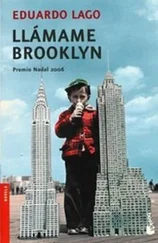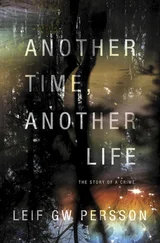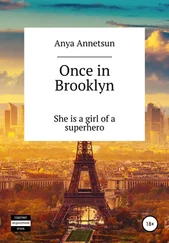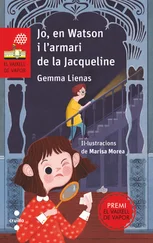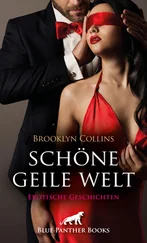We left Tennessee in the night, my father gently shaking my brother and me from sleep. For weeks before, my father and mother had argued. My mother swore she’d bring the butcher knife to bed and sleep with it under her pillow. Clyde told me about you being with that woman last night, my mother said. My uncle Clyde had been dead for almost two years by then.
Don’t trust women, my mother said to me. Even the ugly ones will take what you thought was yours.

On Saturdays, my father took us to Coney Island, the three of us riding the double L train to the F train to the last stop. My brother and I watched from the first car window as the Wonder Wheel came into view, then the long-closed Parachute ride, then the Cyclone, and finally, the ocean. We were terrified of the people who hung around the edges of the amusement park — skinny white men covered to their neck in tattoos, stringy-haired women half naked and fighting against heroin-induced nods on the boardwalk, hawkers yanking passersby toward them, promising them thrills, enormous brown women spilling out of tiny bikinis, Puerto Rican children covered in a thick layer of baby oil. We held tight to our father’s hands as we walked, begging for the corn dripping with butter and clouds of cotton candy being sold. But there was usually only enough money for a few rides and maybe a hot dog and soda for lunch.
We didn’t understand the kind of poverty we lived in. Our apartment was small, furnished by our landlord with a yellow Formica table and chair set in the kitchen, small beds for my brother and me in the single bedroom, and a dark green pullout sofa in the living room. Every evening, after my father kissed us good-night, we heard the squeal of springs as he lifted the sofa into a bed for himself, pillow-less and draped with a thin floral bedspread.
We slept in my father’s castaway undershirts in the summer. In the winter, we paired the shirts with dingy long johns, my younger brother’s frayed with the hand-me-down scars of my own hard wearing of them.
But my brother and I were never hungry, our faces never ashy, and we were always dressed adequately for whatever the weather brought us. We had seen the truly poor kids, the hard bones of their knees and ankles, the raggedness of their clothes, their eyes hungrily following the Mister Softee ice cream truck as we stood inside the front gate with our father, licking our cones. We were not them. Most days, we had enough.
At night, my father shushed us as we cried. Again, I promised my brother that our mother was on her way.
Why did we leave? he asked.
Because Mommy was talking to Uncle Clyde, I said. Daddy doesn’t believe in ghosts.

Our mother was sad-eyed and long-limbed like my father, with graceful hands that always seemed to be reaching for something or someone. When Clyde died, those hands slowed, lifted away from her body less often, rarely reached for us.
The first time I watched Angela’s pale fingers curl into a fist, I thought of my mother. Light dappled cars, our shoes, the bright gray sidewalk. Angela had been dancing, her leg lifting into an arabesque, her long fingers extending out in front of her. Then just as quickly, she pulled her arms in, her hands closing, her eyebrows twisting with such ferocity, I took a step away from her. What? I said. What is it? But Angela just shrugged, shoved her hands into her pockets, and shook her head. I wanted to ask, Where did your hands go, Angela? I wanted to tell her that when her fingers were still like that, my mother reappeared.
At that moment, a woman had staggered past us slowly, fighting against a nod, her hand swollen and veinless. We watched her, the four of us saying nothing. Her dark skin looked soft enough to touch, a blue sheen beneath the brown.
Where were my mother’s still fingers now? I had wondered as I watched the woman, her skin so familiar that I was, for a moment, pulled back in time. Where was my mother’s sad-eyed smile? What was the Tennessee air like without me breathing it with her? Lemonade on the porch. The ringing sound of her laughter. The shine and smell of her scalp just after she’d oiled and pressed her hair.
The woman had staggered to the corner, grabbing for the STOP sign and missing it before disappearing around the corner.
How were we to learn our way on this journey without my mother? Even my father on the boardwalk at Coney Island, the music and hawking and rumble of the roller coaster to the right of him, the vast ocean to the left, walked slowly, unsteadily, as though he was as unsure as we were about what step to take next.

One evening, my father came home with a small radio. When he turned it on, soft music filled our living room, and my brother and I danced the way we had danced back in Tennessee, lifting our arms, as though our mother was holding our hands, our eyes closed, our heads dipped down.

If someone had asked, Are you lonely? I would have said, No . I would have pointed to my brother and said, He’s here. I would have lied even as the empty street on rainy afternoons threatened to swallow me whole. If it was the autumn after Sylvia, Angela, Gigi, and I became inseparable, I would have pulled them close, bending deep into the balm of their laughter.

A woman named Jennie moved into the apartment below us. She was dark and reedy and wore a long, black wig that stopped at the middle of her back. When she spoke, her voice lilted up. Most of what she said was in Spanish. My father explained a place called the Dominican Republic to us but when she was silent, she could have been from Tennessee. She reminded my brother of our mother. She was beautiful in the same haunted way. She’s almost back now, my brother said. She’s almost here . But my father told us to stay away from Jennie.
My father had brought the wooden horsehair brush we used in Tennessee, its bristles still smelling of Dixie Peach and Sulfur 8 hair grease. After washing my brother’s hair, I brushed the small kinks out while he bit his lip to keep from crying. These are Mama’s hands, I whispered. Close your eyes and it’ll be true. He closed his eyes, reached up, and grabbed my hand with his own. August, he said. I can feel her bones.
Every two weeks, my father washed my hair then gave me three dollars and sent me wet-headed across the street to Miss Dora’s house. Miss Dora was big enough to fill two folding chairs and always sat outside with a mason jar filled with ice and Coca-Cola at her feet. With a towel wrapped around my shoulders, I sat on the ground, the back of my head resting against her enormous thigh, watching the block and wincing through her oiling and cornrowing of my hair. She hummed softly as she braided, and often, I found myself dozing off to “Amazing Grace” or “In the Upper Room.”
Miss Dora’s son had died in Vietnam. Small American flags adorned her gate and stairs and were hung with a brown extension cord across the bright red aluminum siding that covered the front of her building. A tiny gold flag was pinned above her heart. As the damage of the war staggered, strung-out and bleary-eyed along our block, Miss Dora greeted every ex-soldier who passed. Glad y’all made it home, she said. We’ll see my boy in the by and by.
Читать дальше
